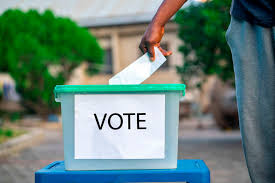
Arusha: The East African Community (EAC) has described the Rwandan General Election held on 15th July, 2024 as peaceful and generally reflecting the will of the people.
The EAC Election Observation Mission to the Republic of Rwanda further urged all actors and stakeholders in Rwanda’s elections to maintain peace until and after the declaration of results by the National Electoral Commission and embrace peaceful resolution of disputes that may arise from electoral processes.
Issuing a preliminary statement on the election in Kigali on Wednesday morning, the Head of the Mission, Chief Justice (Emeritus) David Maraga, said that the electoral process was well-organised and without a single incident of violence, a remarkable milestone in the country’s transformation.
“We congratulate the people and the government of Rwanda as well as all stakeholders for these peaceful elections,” said CJ Maraga, adding that the campaigns preceding the general election had also been conducted in a peaceful atmosphere.
“Since their commencement on 22nd June 2024, the campaigns were conducted in a calm and peaceful environment that enabled political organisations and candidates to campaign freely,” said the former Chief Justice of the Republic of Kenya.
The Head of the EAC Mission was speaking during a ceremony for the release of preliminary statements by missions that observed the general election at the Kigali Convention Centre, Kigali.
Other Heads of Missions who issued preliminary statements were: H.E. Jorge Costa de Almeida Fonseca of the African Union-COMESA (AU-COMESA) Observation Mission; Hon. Mahamat Bechir Okormi of the Economic Community of Central African States (ECCAS); Hon. Mohamed Beavogui of the Organisation internationale de la Francophonie (IOF); Mr. Kennedy Mokaya of the Eastern Africa Standby Force (EASF).
Justice Maraga hailed the public media in Rwanda for promoting a peaceful and transparent electoral process by offering balanced and fair coverage to all the presidential candidates and political parties ahead of the General Election.
The Mission also noted that all the presidential candidates and political organisations had equitable coverage for their rallies and activities.
“In those promotions, the media played a significant role in educating voters to enable them understand the voting process, how to exercise their democratic right and highlighted the procedure on the opening and closing times at polling stations as well as the prohibited activities in polling rooms.”
“The National Electoral Commission made adequate preparations and observed transparency in the management of the 2024 Rwanda General election,” said Justice Maraga.
On voting during the election, Justice Maraga said that the Mission had observed that polling rooms had opened on time.
“However, a few of them opened a few minutes late for various reasons including setting up. In future, the National Electoral Commission is urged to ensure that this does not become a widespread problem. All polling stations visited by EAC observers were free from visible campaign activities and materials,” he said, adding that essential election materials were also available before opening.
“The majority of the polling rooms visited were accessible to persons with disabilities. In cases of inaccessibility, this was due to the uneven ground leading to the polling room or the polling room located upstairs,” added Justice Maraga.
The Head of Mission said that there were a few cases where voters were turned away for being at the wrong station or their names not being on the voters’ register in those stations.
“In the observed polling stations, security personnel were present and highly professional in the discharge of their duties and responsibilities. They did not interfere with electoral processes nor did they intimidate voters.”
Justice Maraga said that election officials displayed high levels of competence and professionalism, and commended the National Electoral Commission for the training of polling officials.
“We also commend the Commission for involving young people and women in the management of electoral processes,” he added.
“Polling rooms generally closed on time. However, voters who were still in the queue at the time of closing were allowed to vote.”
The Mission noted that only 22 days were allocated for campaigns throughout the 30 Districts and recommended that this be increased in future elections.
“In future, we urge the National Electoral Commission to consider allowing at least 30 days for campaigns to enable presidential candidates to campaign in all the 30 Districts.”
In a joint communiqué issue by the Heads of the five (5) observer missions, it was noted that: the electoral, political and security environment in the Republic of Rwanda before, during and immediately after the elections was generally calm and peaceful; and that the National Electoral Commission and other institutions responsible for managing the electoral process had discharged their duties in accordance with the electoral calendar.
Also present at the event were: the EAC Deputy Head of Mission, Hon. Siranda Gerald Blacks; the EAC Deputy Secretary General in charge of Infrastructure, Productive, Social and Political Sectors, Hon. Andrea Ariik Aguer Malueth; Rt. Hon. Ruhakana Rugunda of COMESA; East African Legislative Assembly MPs; Observers from various missions; and Members of Staff of the African Union, COMESA, EAC, ECCAS, EASF and OIF.
The East African Community (EAC) is a regional intergovernmental organisation of eight (8) Partner States, comprising the Republic of Burundi, the Democratic Republic of Congo, the Republic of Kenya, the Republic of Rwanda, the Federal Republic of Somalia, the Republic of South Sudan, the Republic of Uganda and the United Republic of Tanzania, with its headquarters in Arusha, Tanzania. The Federal Republic of Somalia was admitted into the EAC bloc by the Summit of EAC Heads of State on 24th November, 2023 and became a full member on 4th March, 2024. (End)
